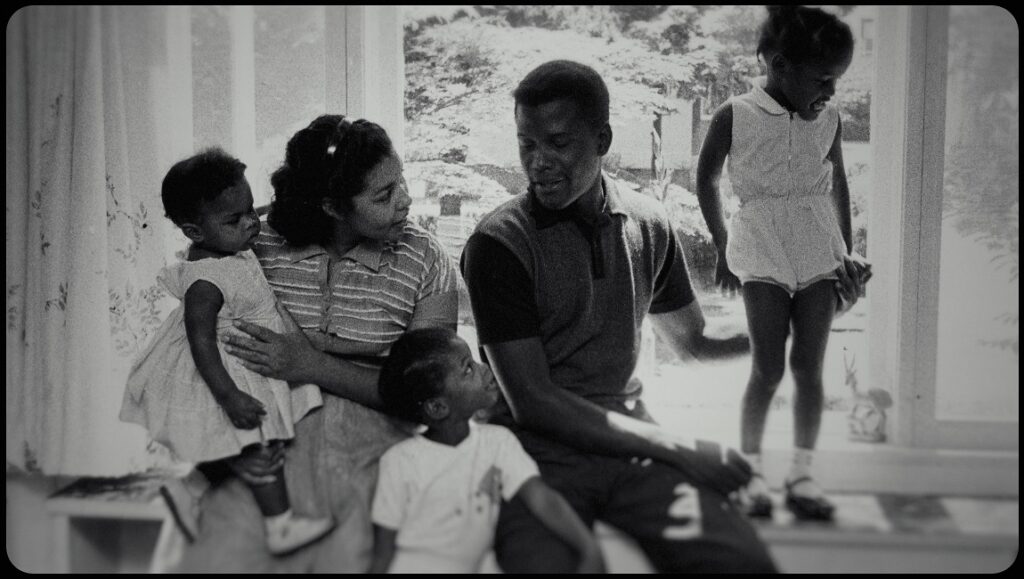Sidney often teeters into hagiography, but the clear affection that strips the film of balance is also what animates it so vividly.
Narrated in large part by the man himself, Sidney (directed by Reginald Hudlin) tells the life story of renowned actor Sidney Poitier, from his childhood in the Bahamas to his status as an elder statesman of American cinema before his death in 2022. Anchoring such a long and varied career in Poitier’s own testimony, Hudlin navigates multiple threads of the actor’s life, weaving the professional with the personal and the political, aiming for a portrait of the actor that draws on what mattered most to the man himself, according to those who knew him best in each sphere of his life.
With such a magnetic presence as Poitier as his subject, Hudlin already has a considerable advantage in engaging his audience. Poitier is a born orator, his words chosen with care and caution, his voice simultaneously warm and authoritative — even in interviews, his presence is near-indescribable, and Hudlin knows exactly how to utilize such an invaluable trove of footage: wisely stepping back, allowing Poitier’s own words to guide the film’s narrative and the director’s occasional interventions, specifically his repetition of narration. Repeating Poitier’s claim that, as an infant, he was not expected to live to draw attention to the rich life he did in fact lead may not be a subtle choice, but it is undoubtedly an emotionally affecting one, deftly timed and tastefully done. Hudlin also manages to make clear the connection between Poitier’s professional work and his political activism, considering the two indivisible from each other without simplifying either. Sidney may not fully embrace any potential mess or ambiguity in Poitier’s life, but it does begin to grapple with the complex overlap of its many spheres, and Sidney‘s holistic approach is perhaps its most interesting quality.
But the line between love letter and hagiography in a documentary is a razor-thin one, and it’s not entirely a line that Hudlin stays on the right side of. Produced by Oprah Winfrey, a self-declared protégé of Poitier, the film clearly comes from a place of profound admiration and personal affection, and while it would be unrealistic to expect Sidney to be an entirely balanced affair, the film is single-minded in its devotion to his legacy. As a document of the achievements of a great man, Sidney is entirely satisfying, but as a balanced, nuanced portrait, there’s admittedly a measured quality that is lacking. Hudlin pays lip service to critiques of what Poitier came to represent in film and to his bitter disagreements with close friend and peer Harry Belafonte, but the director steadfastly refuses to give criticism any airplay whatsoever. It’s an entirely understandable impulse, particularly given the film’s release so soon after Poitier’s death, but it’s one that limits just how engaging Sidney can be, respectful to a fault. What’s perhaps most interesting, then, is that even in spite of the film existing as pure adulation, beginning to end, Sidney still manages to engross. The same love that strips the film of any balanced insight is also what animates it so vividly, creating a very real sense of the role Poitier played in the lives of so many and conveying the strength of his legacy. Every person featured in this documentary, from relatives to peers to political allies loved Sidney Poitier — it’s hard not to be gripped by such a deep, abiding adoration, and it’s even harder to finish the film without absorbing at least some of that love yourself.
You can currently stream Reginald Hudlin’s Sidney on Apple TV+.


Comments are closed.